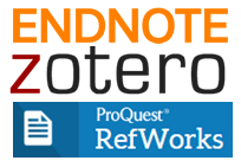 Librarians are often invited to provide instructional knowledge about citations. Since I just taught such a class for one of my favorite colleagues, a SEBS instructor and researcher who deeply cares about her students, I thought I’d share what a librarian can accomplish in about an hour. The next installment of the “Cite Right” series under Science Communication from Books We Read uses resources from Rutgers University Libraries, such as the freely available research guides or LibGuides and citation management software applications (NetID is required in some cases).
Librarians are often invited to provide instructional knowledge about citations. Since I just taught such a class for one of my favorite colleagues, a SEBS instructor and researcher who deeply cares about her students, I thought I’d share what a librarian can accomplish in about an hour. The next installment of the “Cite Right” series under Science Communication from Books We Read uses resources from Rutgers University Libraries, such as the freely available research guides or LibGuides and citation management software applications (NetID is required in some cases).
Why citations matter
Citations allow your readers to trace back to the source and verify the information. Failing to cite properly might look like “borrowing” ideas, which equals plagiarism.
On plagiarism
Plagiarism is “an act or instance of using or closely imitating the language and thoughts of another author without authorization and the representation of that author’s work as one’s own, as by not crediting the original author” (Source: dictionary.com). For example, using someone else’s words or ideas without acknowledgment, or even worse, copying another person’s writing and passing it as one’s own.
How to avoid plagiarism
Plagiarism is often a result of being rushed. Planning ahead and allowing plenty of time is half the success. Developing one’s own note taking habits is next in line, including the use of the Citation tool and the Permalink feature in QuickSearch. Citation style guides, such as Purdue OWL with various citation manuals and citation management applications are available to help. See also the guide on Plagiarism.
What’s a citation manager?
A citation management system is your personal database that allows you to:
- Import and collect citation information such as author, date, format, and title
- Create and organize customized research libraries
- Create a bibliography automatically for works cited in your paper
- Add in-text references to your paper
- Link to the full-text article for future retrieval
- Save and take notes on PDFs
- Organize your sources using tags or folders
- Share your collections with others

Why is it useful?
Citation managers are a cloud-based research and bibliographic management tools providing access to your references and documents from any computer or mobile device. You can:
- collect information (citations and full text articles) from online databases and websites by importing or entering manually
- organize, customize, and store above information in folders and subfolders, including reading, highlighting, and annotating documents
- create and format a bibliography of works cited in a variety of citation styles
- add in-text citations and footnotes to a paper directly from your RefWorks library
- share documents to collaborate with other researchers.
